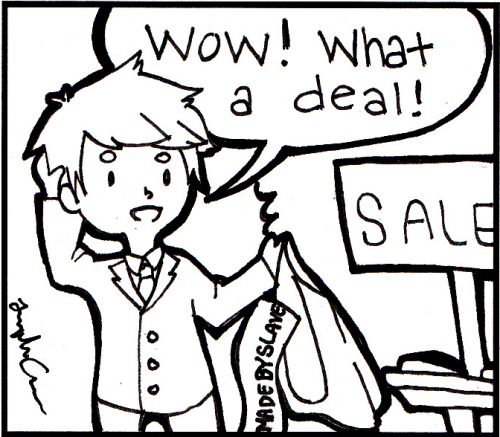The Grim Reality of Contemporary ‘Slavery’

BARRY CHEUNG
Staff Writers
Though less prevalent, slavery still occurs today, disguised as “forced labor” and “human trafficking,” but slavery should not be tolerated in any form.
Slavery has slowly immersed itself into people’s daily lives. In Immokalee, Florida, illegal immigrants were beaten and forced to work on tomato farms to harvest produce unknowingly purchased by the general public. Fortunately, the Coalition of Immokalee Workers (CIW) was founded as a way of helping workers secure better wages and safer working conditions. In fact, CIW helped to raise industry-wide wage increases of 13 to 26 percent by 1998.
However, forced laborers continue to be used due to the great profits their work generates. According to a study conducted by the United Nations in 2005, human trafficking is a low-risk crime that can generate profits as high as $32 billion per year. Forced labor is similar in that it costs very little for the employers, all while bringing a large amount of “tainted” profit.
As kidnapped laborers work hard each day, receiving barely any form of recognition for their work, the human traffickers go back to the comfort of their homes each night with money that they do not deserve and no repentance for their immoralities.
With a capitalistic economy like America’s, the clothing industry has many sweatshops in countries such as China, India and Bangladesh since labor is cheaper abroad. In America, the demand for trendy but affordable clothing becomes the biggest motivator for building sweatshop-like environments for workers. On Oct. 4, a Bangladeshi factory working for Gap Inc. was revealed for its inhumane treatments. Workers, including pregnant women, worked approximately 100 hours per week and barely earned 20-24 cents an hour. It is easy to turn away from the injustice just for the sake of buying cheap clothes here in America, but as a nation that promotes freedom, justice and equality, we should not turn away from the harsh realities of present-day slavery. Doing so would consciously promote slave-made products, allowing these employers to profit and therefore enabling forced labor to continue.
Some may say that forced labor is not completely immoral, since they still have a job and a place to live. However, their jobs and housing conditions are poor, and the expense of their freedom and happiness is a price that some of these workers may not want to pay.
Instead of pretending that the inequity of workers being paid so little for their hard work does not exist, everyone should work on promoting the end of human trafficking along with dangerous working conditions by not supporting companies with such slave forces, signing anti-forced-labor petitions and mailing letters to these companies about their workers.
As these problems become increasingly well-known, more people should support the end of the harsh treatments and low wages these workers receive, so that these conditions are no longer the norm.